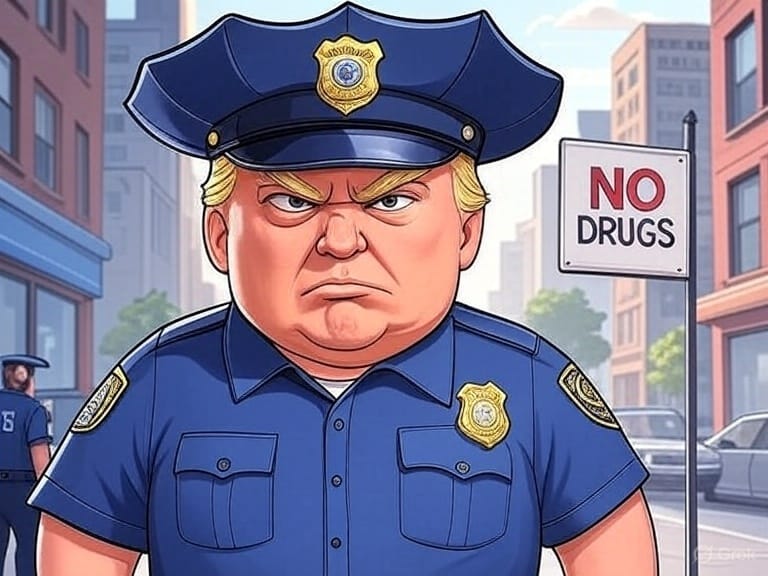- Shortlysts
- Posts
- Trump Enacts New Law to Combat Fentanyl Crisis with Tougher Penalties
Trump Enacts New Law to Combat Fentanyl Crisis with Tougher Penalties
President Trump signs the HALT Fentanyl Act, permanently banning all fentanyl variants and increasing penalties for trafficking synthetic opioids.

What Happened
President Trump signed the HALT Fentanyl Act into law during a ceremony at the White House. He was surrounded by families who lost loved ones to fentanyl overdoses, often referred to as ‘Angel Parents.’
The bipartisan law permanently classifies all fentanyl-related substances (FRS) as Schedule I drugs and imposes stricter penalties for trafficking. Under the new law, possession of 100 grams or more of any fentanyl analogue now carries a mandatory minimum sentence of 10 years in federal prison.
The legislation also simplifies prosecution by treating all fentanyl variants, regardless of minor chemical differences, as equally illegal. This closes a legal gap that had allowed synthetic drug manufacturers to slightly alter chemical compounds to avoid enforcement.
The bill received strong support from both parties in Congress and was backed by the Department of Justice and Drug Enforcement Administration.
In his remarks, President Trump praised the families present for their advocacy. He described the legislation as a critical step in protecting American communities from what he called a national emergency.
Why It Matters
Fentanyl and its chemical variants have become the leading cause of death in the United States for adults between the ages of 18 and 45. According to federal health data, over 75,000 Americans died from synthetic opioid-related overdoses in 2023. Fentanyl is often mixed with other drugs or sold in counterfeit pills, making it especially dangerous and difficult to detect.
Crypto whales have quietly accumulated $62 million worth of a single protocol in just 72 hours.
This is calculated accumulation by the smartest money in crypto... into a protocol that processes more transactions than most banks... holds more assets than entire hedge funds... and generates more fees than 99% of DeFi platforms.
Yet... this cryptocurrency still trades for a tiny fraction of what Bitcoin costs.
The math doesn't add up.
But smart money knows something retail investors don't.
Two catalysts are about to converge:
Major tokenomics upgrade that redirects $6 million annually to holders.
Institutional partnerships that could bring trillions in traditional assets on-chain.
When these hit, the current price will look like pocket change.
The HALT Fentanyl Act makes permanent what had previously been a series of temporary measures. By establishing a long-term legal framework, the law aims to keep pace with how quickly synthetic drugs are developed and distributed.
Law enforcement agencies say the new authority will streamline investigations and prosecutions. It will also make it harder for traffickers to exploit technical loopholes in drug policy.
Supporters of the law see it as a direct response to an evolving drug crisis. They point in particular to foreign supply chains and domestic trafficking networks.
The legislation focuses on the enforcement side of the epidemic, targeting manufacturers, distributors, and high-level traffickers of fentanyl-related substances.
How It Affects Readers
The HALT Fentanyl Act gives federal and local law enforcement new tools to address fentanyl trafficking and production. For communities affected by opioid-related deaths, the law represents a positive step toward stronger consequences for those contributing to the crisis.
The law does not include provisions for drug treatment or addiction recovery, which are addressed separately through public health programs. However, it does establish a permanent and uniform legal approach to fentanyl analogues. That is aimed at deterring trafficking and streamlining the justice system’s response.
For families who have lost loved ones, the bill reflects growing national attention to fentanyl’s impact. It shows a federal commitment to addressing the crisis through enforcement. It may also serve as a foundation for future legislation focused on prevention, recovery, and treatment.